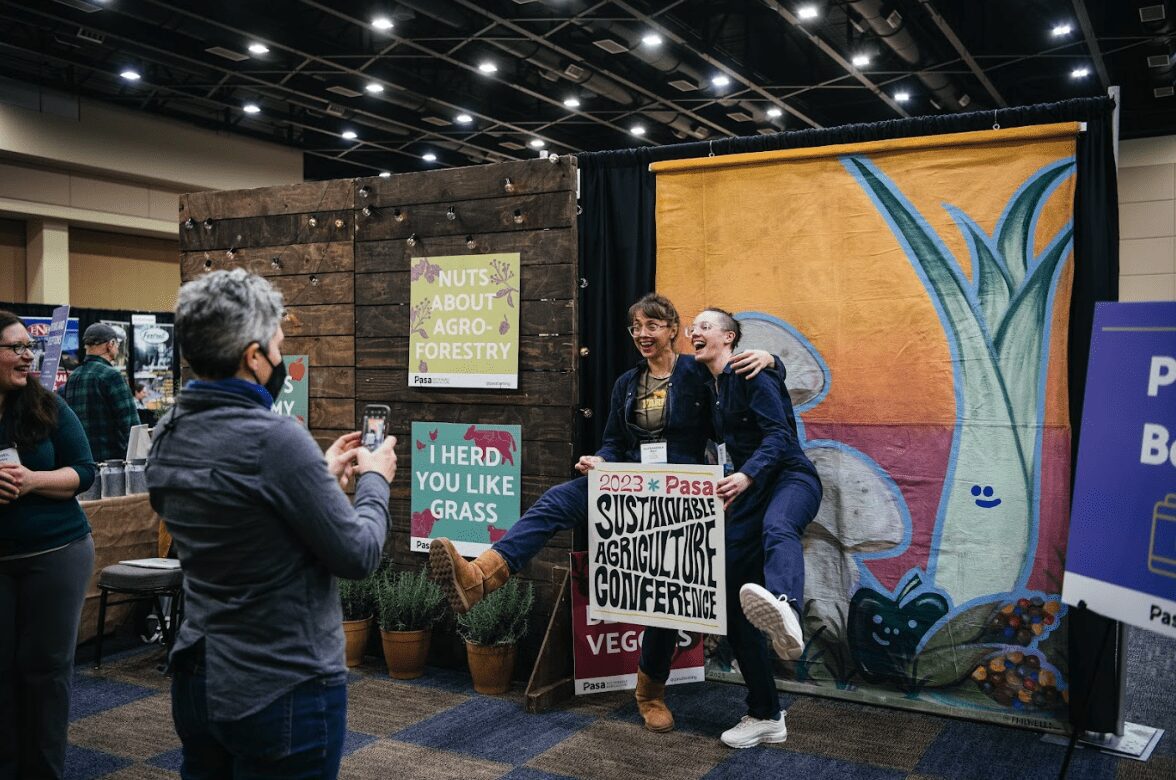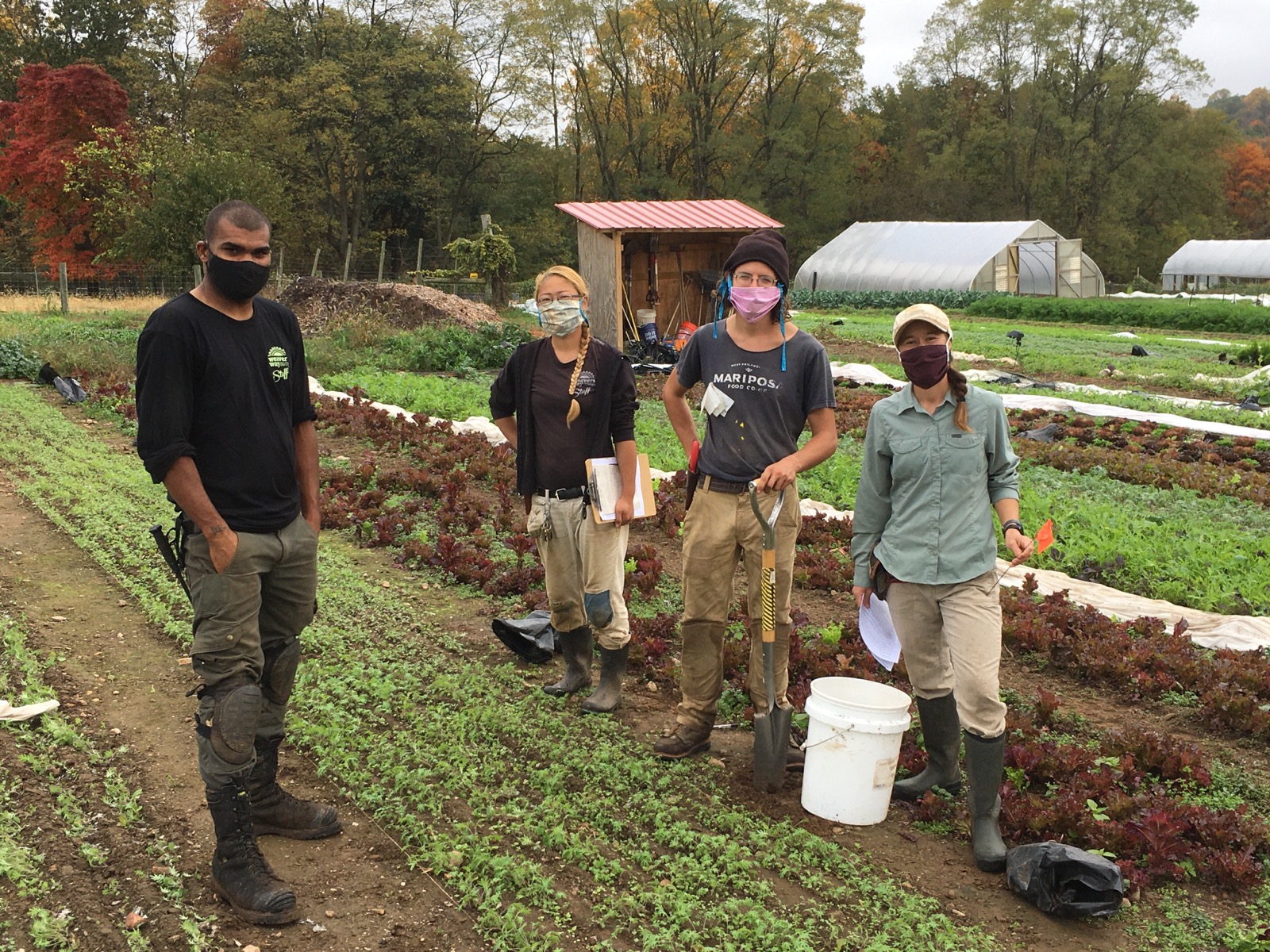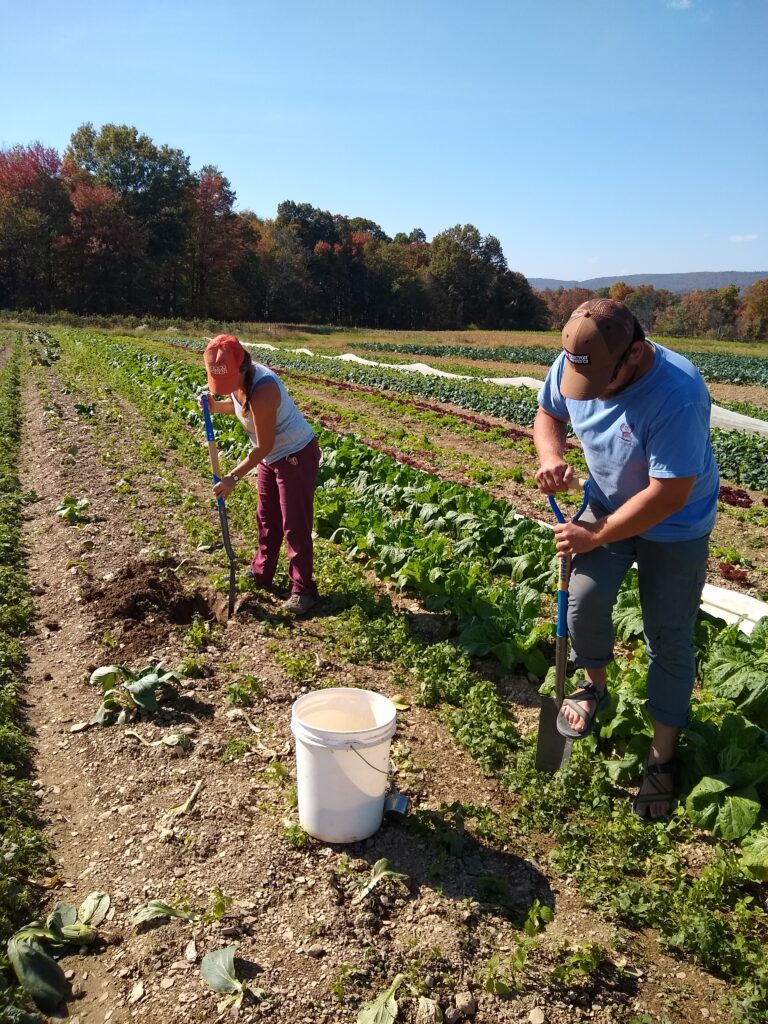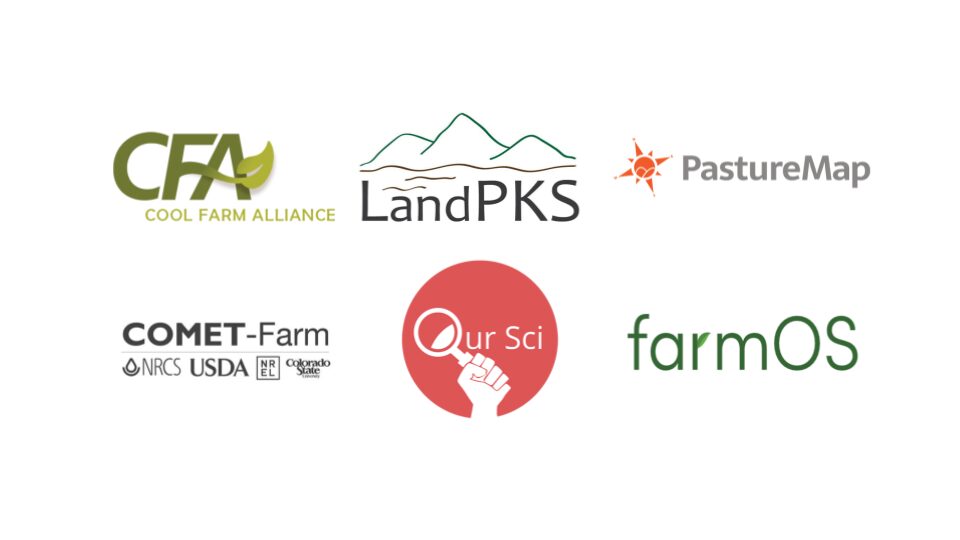Conference attendees pose for a photo at Pasa’s 2023 Sustainable Agriculture Conference. Credit: Dani Fresh for Pasa Sustainable Agriculture
As an OpenTEAM Fellow based at Pasa Sustainable Agriculture I had the opportunity to experience Pasa’s annual winter conference. The origins of the organization lead back to Pasa’s very first conference in 1992, started and organized by farmers who were looking to share learnings and explore sustainable agriculture together. Today, the conference continues to be a time for farmers to reunite year after year and to meet new faces, gathering in the spirit of sharing, listening, and learning. The relationships the Pasa community stewards all year long come alive during the conference. You can’t help but feel the deep sense of community, the buzz of mutual admiration, curiosity, and hope continuing to weave a tapestry each year, telling the story of Pasa. While this group spends three days in sessions on a variety of topics, it is clear when they are not indoors at the conference, they are taking these learnings and inspiration as fuel to keep moving closer to the shared vision of “a world where agriculture nourishes, heals, and empowers.”
Prior to the official conference kick off, Pasa’s long standing Soil Health Benchmark Study research team and partner organizations Future Harvest and Maine Farmland Trust held a gathering for farmer research collaborators to connect and discuss their annual soil test results. They heard from Cornell Soil Health Lab about how to read their annual soil test lab results and listened to the stories of diversified vegetable, row crop & grain, and pastured livestock research participants about their operations and how the study has helped to improve their soil health over the years. The gathering also facilitated farmer to farmer learning circles. Young farmers seeking the sage advice of established producers, older farmers proudly sharing their story as humble stewards of the land improving their soil one season at a time. Be it vegetables, row crops, or pasture a key theme for building soil health was planting a diversity of crops to capture as much sunlight as possible to feed the soil carbon cycle.
Beginning the conference alongside the keen curiosity of the soil health study’s farmer participants set the tone for an engaging few days. As an OpenTEAM Fellow, the conference was an incredible opportunity to support Pasa’s team, partners, farmers, and food system professionals in sharing stories and knowledge. The sessions throughout the conference provided fodder for exploration. High Mowing Organic Seeds spoke about the vital need for farmer feedback to build regional resilience by developing seed varieties that thrive amidst increasing climate challenges and the opportunity for farmers to diversify their income through producing seeds. Different sessions covered the value and importance of digital tools and data collection, be it to advance equitable access to nutritional food at farmer’s markets and farm stands, revitalizing a local fibershed, advancing research on biodiversity, or tracking farm management practices to increase soil health as we often talk about at OpenTEAM.







